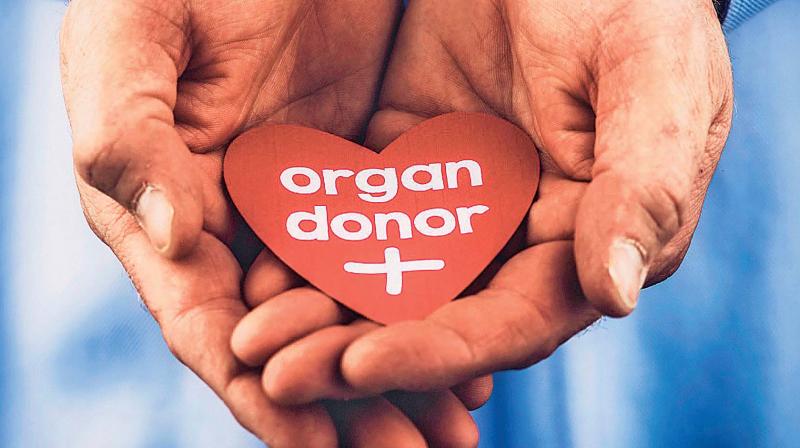Organ donation: Driving licence can have consent

Chennai: Getting the consent of family members for the donation of their deceased kin’s organs has been a challenge for years. However, when individuals possess a donor card, it makes matters simpler.
Despite the fact that awareness on donations is on the rise, people fail to step out of their comfort zones and register for a donor card or pledge their organs.
Therefore a need for a simpler procedure was felt by many who work towards organ donation. With this in mind, the Mohan Foundation, with support from other NGOs, has been urging the government to introduce a consent sign on the driving license.
“We have been working on this for the past 10 years, putting forth multiple appeals to the transport authority. We are in the hope that it will be introduced this year,” said Dr Sunil Shroff of the Mohan Foundation, on the sidelines of the Indian Society of Organ Transplantation’s second mid-term meeting, themed ‘Asian perspectives on Organ Donation and Transplantation’.
“The license could bear the symbol of a heart, implying that the individual has pledged his organs. The white space on the license could also bear the statement ‘I have pledged my organs’. This will reduce further complications of seeking the consent of the deceased’s organs,” he added.
Stating that Sri Lanka has already introduced the consent bearing license, Dr Niroshan Seneviratre, Consultant Urologist and Transplant Surgeon, Sri Jayewardenepura General Hospital, Colombo, said, “It has made matters a lot simpler for doctors. Also, this helps increase the number of donations per se.”
Illegal donations down
The enormous demand, supply gap in organs, and an increasing number of people falling prey to diabetes and other diseases causing kidney failure, are only two among many other reasons why people choose to opt for paid living organs.
“The government and the state health department should provide an easy way to avoid people opting for the difficult and illegal way of donation. Also, no VIPs should be bypassed from following the same laws that are cut out for the public,” said former convener of the state Transplant Network (Transtan) Dr Joseph Amalorpavanathan.
With India’s laws having undergone amendments in 2011, the donation of unrelated living organs, which is illegal in the country, has become increasingly difficult.
“Commerce in organ donations is illegal and anyone planning anything commercially in this field, should be highly careful, especially practitioners, who could lose their licenses,” said Dr Sunil Shroff of the Mohan Foundation.
Other countries like Nepal, too see some cases of unrelated organ donations.
“Those who indulge in illegal donations, tend to create fake documents to start it off. However, the cases have come down in the recent past,” said Dr Rishi Kumar Kafle, chief consultant nephrologist and executive director, National Kidney Centre, Kathmandu, Nepal.
Countries like Sri Lanka, however, do not have any laws forbidding the same. “Most of the Sri Lankan population is Buddhist and it is a belief among Buddhists that a donation is an act of charity. Priests, therefore, have been granted the permission to donate organs while alive as it is considered a very noble deed,” said Prof. Renzvi Sheriff of Western Hospital, Colombo.
Stating that Tamil Nadu hasn’t seen a kidney racket in the past five years, Dr Amalorpavanathan said, “It is because of increased awareness on donations and the law forbidding illegal donations. The transparency of cadaver donations is another factor why illegal donations have come down.”
As the donations are all registered in the organ donation registry, it makes it all the more difficult for people to carry out illegal donations in the state, he said, adding that a national-level ombudsman, independent of the government, should come up soon. This will help check the racket in other parts of the country as well, he opined.

